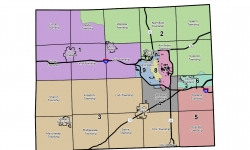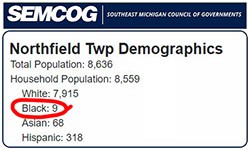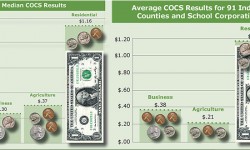On November 9, the Center for Public Integrity ranked the State of Michigan dead last of all America's states for public integrity.
Rather than waste time whining about the unrepresentative condition of state and national government, I'm concentrating my limited energy on learning how local government works. I'll post whatever seems informative or useful.
The About Washtenaw County FAQ page
A Directory of County Boards and Commissions - This Washtenaw County web page is a mess. I will find a way to make the constituent boards and commissions and whatever documentary trail they produce visible or useful. Don't hold your breath. I found the minutes of one of the boards completely by accident. If you know something I don't (which is highly likely) email me your info to This email address is being protected from spambots. You need JavaScript enabled to view it.
Here are some explainers and links to help you learn how Michigan County government operates.
These were written by MSU's John Amrhein. He relies heavily on the Guide to Michigan County Government 4th Edition, by MSU Professor Emeritus Ken VerBurg. Updating to the 5th Edition is underway and expected in fall, 2016. (So save your $50.)
-
The county clerk’s role with the board of commissioners
November 9, 2015 |
-
County board rules
November 5, 2015 |
-
County compensation commission
November 3, 2015 |
-
County board officers in Michigan
October 30, 2015 |
-
County commissioner committee structures vary
October 27, 2015 |
-
County commissioner pay – Salary versus per diem
October 23, 2015 |
-
County commissioner pay – how much?
October 22, 2015 |
-
Main functions of county commissioners in Michigan
October 21, 2015 |
“Almost anyone who has completed a course in social studies or government will tell you that the first task of a legislature is to pass laws. Very few people will add two other functions that textbooks mention; conducting legislative oversight and providing constituent services. But if you watch county commissioners or other legislators, you will see them carrying out these responsibilities. The extent of some of these functions will vary from county to county depending on the administrative structure of the county government. Commissioners in counties with strong administrative systems will have different responsibilities than those in counties having no central administrative system. Let’s review each of the legislative functions briefly.
Setting Policy
Residents and, perhaps, some county commissioners may not think of the county board as passing laws. Three reasons explain this perception. First, we use a different name for the measures that county commissioners pass; the state law refers to them as ordinances rather than laws or statutes. Second, county boards face rather significant limitations on the ordinances they may pass; consequently they do not pass very many. Third, few county ordinances affect the public directly.
Does this mean that boards of county commissioners do not function very actively as a lawmaking body? The answer is no, especially if we take a broader view of the function and define it as “making or setting policy.” In that sense, county commissioners are lawmakers; they pass numerous resolutions that establish the policies of county government. These policies deal primarily with the agencies of county government and less directly with county residents. County policies deal largely with the county budget, appropriations, personnel, capital improvements, county services, and other internal matters.
Legislative Oversight
The second function, legislative oversight, may be especially important for county boards. Because of the limits on county lawmaking powers and the statutory assignment of duties to elected county officers, county commissioners may devote some of their time to looking over the shoulders of the administrators in county government. In so doing, they seek to assure that county administrators carry out their tasks effectively and efficiently. And they try to assess the effects of programs that county funds are being used for.
Constituent Services
A third major legislative function is providing constituent service; that is, checking on problems residents may have with a county agency, helping them obtain the services of a county agency, or just providing information one of them has asked for. Some critics, of course, argue that providing constituent services is only year-around politicking. To a degree that is so. But representing voters to administrators is a function that few, other than elected officials, can perform. This involvement with residents also strengthens the oversight function because it gives commissioners a sense of how county programs are working.”
The Big Picture
This is the fourth characteristic I mentioned above. As the elected body that oversees the entire county budget, the Board of Commissioners also needs to look carefully at the ways that county departments interact with each other. The board is uniquely situated to be the unit of county government that keeps an eye on the future, anticipating changes in society and enabling legislation, and, through their policy setting role, working to keep the entire county operation focused on excellence and cost effectiveness in their provision of services to citizens.
-
Michigan counties: Broad or limited powers under the state constitution and statutes?
October 19, 2015 |
Counties in Michigan are limited in their powers. The state constitution and statutes define the power counties have. Ken VerBurg, MSU professor emeritus looks at the impact of both “strict construction” and “contemporary construction” on counties in the 2007 edition of his book, Guide to Michigan County Government.
“The main definition of strict construction of law as it relates to local units came from Justice John F. Dillon, a member of the Iowa Supreme Court in the late 1800s.
His opinion, Dillon’s Rule, states that local governments may exercise those powers “…granted in express words; ... necessary or fairly implied in or incident to the powers expressly granted; ... [and] essential to the declared objects and purposes of the corporation—not simply convenient, but indispensable.”
Then he added this zinger: “Any fair, reasonable, or substantial doubt concerning the existence of a power is resolved by the courts against the corporation, and the power is denied.”
According to the rule of strict construction, then, if a statute does not specifically grant a certain power or the power cannot be fairly implied from the stated power, the right to exercise that power is denied. This is difficult and hard language. It is difficult to imagine how a unit of government can operate effectively under such narrow interpretations of the law. But the rule of strict construction does flow logically from the principle that local governments have no implied or inherent powers. That, of course, makes counties very different from state or national governments which derive their powers from their respective constitutions and the people. They also differ from city governments, not because cities have inherent governing powers, but because Michigan’s grant of home rule to cities is broad and widely used. The 1908 Michigan Constitution granted home rule powers to the state’s cities and villages.”
But the story doesn’t end there, VerBurg goes on to talk about contemporary construction, a broader interpretation of local government’s powers.
“Why should something a judge in Iowa decided more than one hundred years ago still govern us today? Part of the answer is that the U.S. Supreme Court upheld the principle several times since Dillon wrote his decision. Moreover, the Michigan Supreme Court has sometimes upheld it as well. The other part of the answer is that the principle is gradually, but only gradually, becoming less important than it once was. Michigan’s 1963 constitution has helped a little, stating that the laws and legal provisions applicable to local units “shall be liberally construed in their favor” and that “the powers granted to counties and townships by this constitution and by law shall include those fairly implied and not prohibited by this constitution.”
Has this provision made a difference? We still see some court decisions and state attorney general opinions that sound a great deal like what Dillon might have written. That is, the rulings often seem not to go very far beyond what a statute specifically states. On the other hand, we cannot say how many decisions have gone in favor of the counties because of the clause. It is probable that judges and lawyers do not apply Dillon’s Rule with the vigor they once did. But the liberal construction clause does not mean that a court will uphold counties when they “define” their own powers. Counties must still depend on the state constitution and the state legislature to define what they may and may not do. This is likely most dramatically seen in a county’s very limited (almost none) power to adopt general police power ordinances. The article County government powers are very limited has more about this.
-
Are Michigan counties a local government, or just a branch of state government?
October 12, 2015 |
Is county government in Michigan a local government, or merely a branch of state government? Ken VerBurg, Michigan State University professor emeritus talks about this subject in the 2007 edition of his book, Guide to Michigan County Government.
“State officials as well as many citizens think of county government as an “agent” of the state, a role developed in England and carried forward in America. County government in Michigan remains in that role to a degree. County governments exist to extend some powers of state government throughout the state. For example, the state requires county prosecutors to enforce the state criminal laws. Registers of deeds receive and maintain custody of land records and other property-related documents. And clerks administer elections for the state and exercise other duties that are of particular interest to the state. These officers perform these functions for the general well-being of the state. They are duties the state would probably exercise itself if there were no counties.
But counties are local governments as well. They carry out programs that benefit primarily a local population. County parks and recreation programs, county water and sewer systems, county airports, or community crisis centers are supported by counties because local residents want and need them. The state does not require counties to engage in these programs but in some instances practical considerations leave little other option.
Thus, while counties continue to function as agents for the state, they are also genuinely local governments. As such, state law gives them their own legal identity with the right to sue and be sued, enter into contracts, hold real and personal property, borrow money for legal purposes, perform acts necessary to safeguard county property, and conduct county affairs. But while counties are “legal persons,” we should not stress the concept too vigorously because the source of county legal power is still the state constitution and law.”
So the answer is that counties serve both purposes. They extend many services of the state so that citizens across the state receive essentially the same service regardless of which county they reside in; and they also provide services which are unique to their own county, and serve as a local government which is close to and responds to the needs of local citizens.
-
County government in Michigan based on four models
October 6, 2015 |
-
County government structure varies from state to state
October 5, 2015 |
-
Financial reserves in government: Part 2
September 28, 2015 |
-
Financial reserves in government: Part 1
September 15, 2015 |
John Arnheim's articles were published by Michigan State University Extension. For more information, visit http://www.msue.msu.edu. To have a digest of information delivered straight to your email inbox, visit http://bit.ly/MSUENews. To contact an expert in your area, visit http://expert.msue.msu.edu, or call 888-MSUE4MI (888-678-3464).
















![[2015] PUDs and Density Bonuses in Northfield 80 Acres TitleDensityComparisonsZoning](/modules/mod_raxo_allmode/tools/tb.php?src=%2Fimages%2FMisc%2FLewan2015_03_04_80Acres%2F80_Acres_TitleDensityComparisonsZoning.jpg&w=250&h=150&zc=1)




















